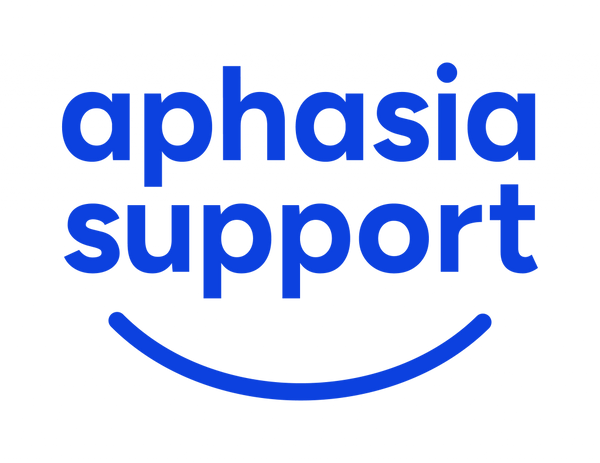How to overcome challenging conversations

People with Aphasia have to overcome many challenges as a result of their communication difficulties. As a friend or relative, there are lots of things you can do to help.
It’s important to understand how much life changes when you struggle, or have the inability to, speak, read, write or understand language. Members of our Harrogate Aphasia Café group recently shared the stark reality of having Aphasia. They all agreed that participating in conversation was often a real ‘effort’ and could be 'very frustrating’ at times. Comments included:
- “My circle is smaller. I don’t have as many people I can talk to now.”
- “I find it tricky to plan ahead and often lose my train of thought, making it hard to expand points and ideas.”
- “I can’t keep up with fast paced conversations and struggle when the topic changes.”
- “By the time I’ve formed what I want to say, the conversation has moved on and the moment is lost.”
- “I find it hard to follow conversations with groups of people, or in noisy places.”
- “People only talk to me about there here and now, and shy away from meaningful conversation.”
So, how can we help our friends and relatives with Aphasia to engage in more complete and satisfying conversations? Speech and Language Therapist, Rhona Palmer, collaborated with our Harrogate Aphasia Café group to put together 10 helpful top tips which you can explore below.
10 Top Tips
1. Consider time and space: It’s important to slow the pace of conversations. Before you move on, check back in and ask if the person with Aphasia has fully got their point across, or if they have more they want to say on the topic. Try not to jump in or talk for them.
2. Reduce distractions: Give yourself the best chance to have a good chat by reducing distractions. That means turning down background noise and having good eye contact while you are talking.
3. Make time for talking: It might be a half hour when you get in from work or an outing. Sit down with a cuppa and share your thoughts on the day. Ask the person with Aphasia what is on their mind.
4. Be an advocate: Be an advocate for your friend or relative’s knowledge and competence. Often people with Aphasia find themselves merely responding to questions rather than driving conversations themselves, especially with people they don’t know well or healthcare professionals. If you are supporting someone in that type of environment, direct questions back to the person with Aphasia rather than answering for them. Let people speak for themselves and support where necessary.
5. Use open questions: Asking questions that require only a ‘yes’ or ‘no’ answer will make for a very short conversation! Get people’s opinions by asking questions like “what do you think?” or “how should we tackle this situation?” or “what would you suggest?" and be ready to check in that you have understood correctly. If someone has difficulty producing sentences, giving a choice of 2 or 3 written options that they can point to will give a sense of choice and acknowledgement that their opinions and preferences matter.
6. Start important conversations with clarity: Try starting with phrases like “I want to know what you think about this” or “I wonder how you feel about this?” or “let's look at the options together” and be prepared to have a pen and paper handy to check back with key words.
7. Don't shy away from controversial topics: “What did you think of Trump’s latest announcement?” It’s amazing what you can express through gesture and facial expression!
8. Don't lose your sense of humour: Allow people to express their old selves and laugh about misunderstandings if you can. Aphasia can be seriously frustrating, but laughter can defuse a situation and really can be the best medicine.
9. Make full use of technology: Smart phones get a bad rap but hold a host of ways to help expand chats to show what you mean, especially if retrieving names of people and places is frustrating or problematic. Referring to photos can expand on stories or memories, and maps can be a game changer for finding that place name that you can't quite retrieve.
10. Take a break: Conversations can be exhausting. Sometimes people with Aphasia describe a feeling of overload and just need to take some time out - that’s OK. Encourage your friend or relative to take a rest somewhere quiet and revisit unfinished business later. Write down reminders for things that you want to return to.
What’s not to love about having good conversations with Aphasia?
We put these top tips into practice to create a supportive atmosphere at our Aphasia Café’s. The result is varied and we always have fascinating conversations on a variety of topics.
Sometimes the hubbub of people chatting together is daunting, sometimes we have misunderstandings that take a while to work out, and sometimes people have different opinions or experiences. But everyone comes with a positivity to participate, everyone is included and we have lots of laughs along the way!

